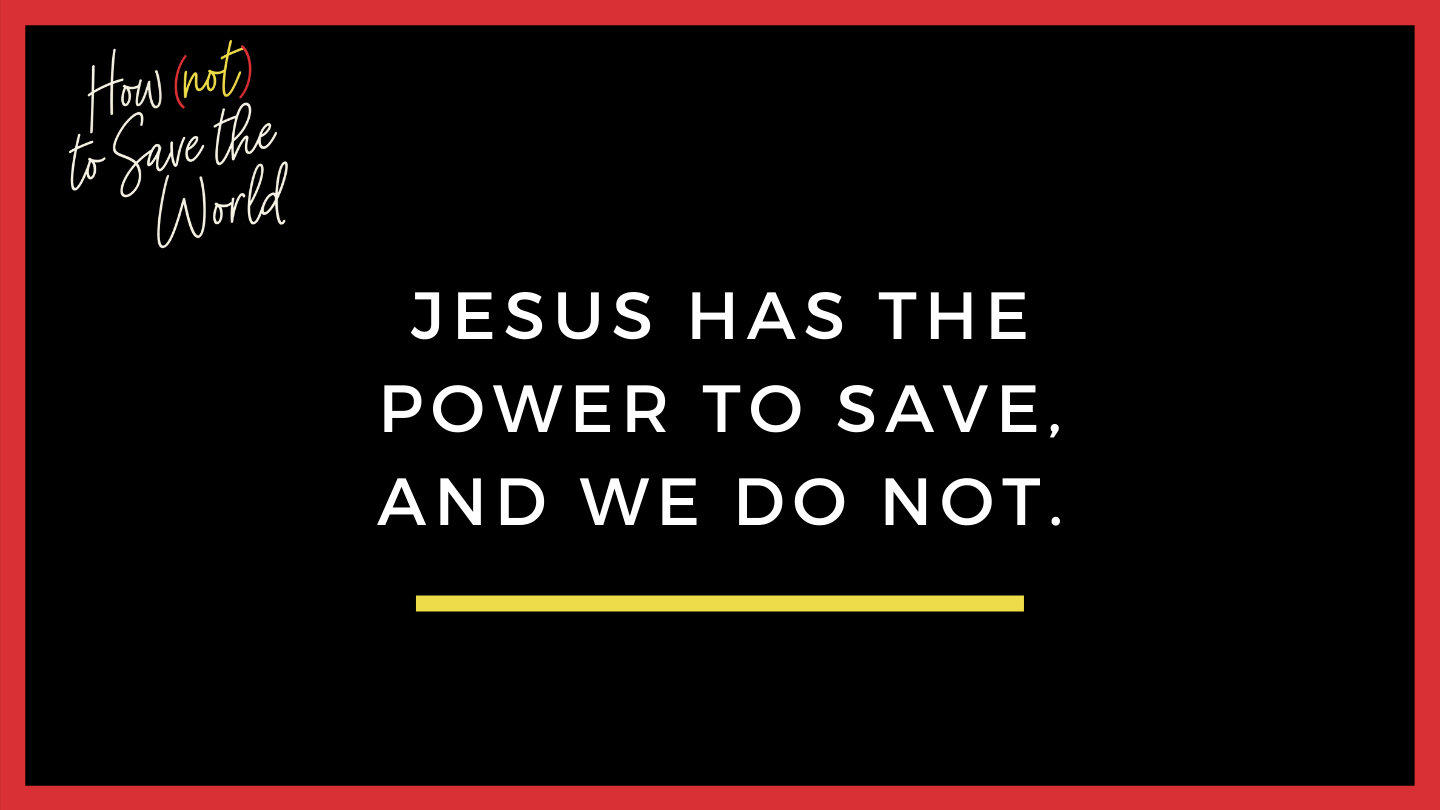How (Not) to Save the World: The Truth About Revealing God’s Love to the People Right Next to Youનમૂનો


How (Not) to Save the World: Rely on Your Own Power
My parents founded an outreach to those living on the streets in the Tenderloin district of San Francisco, so most of my childhood was spent in a run-down public park with my family holding church services and Bible studies, handing out lunches and items of clothing, playing chess, and watching basketball games. I was nine years old when I witnessed my first murder. Two groups who hated each other faced off in a blur of knives stabbing and slicing and people swarming. Then the crowd backed off and a man fell to the cracked concrete with a knife in his chest.
Looking down at my worn-out sneakers, standing in this park I loved so much, there was a queasy feeling in my stomach. I knew I had seen something I was not supposed to see. I felt a feeling I had never felt before. Guilt. I remember feeling like I was supposed to save somebody, but I didn’t. The early inner workings of guilt were planted within my heart. They continued to sprout like weeds. I signed up for as many community outreaches as possible, but our neighborhood’s needs never seemed to lessen. I tried to do more, save more, and save better, and instead, the disappointing results left me insecure and angry.
No matter how or where we grew up, many of us know what it feels like to be overwhelmed and disheartened by the insurmountable needs around us. We are all painfully aware that our loved ones are hurting. We are terrifyingly in tune to the fact that our world is in dire need of saving. We want to be a part of the solution. I want to let you in on a freeing truth: Jesus is the Savior. Jesus has the power to save, and we do not.
I know how it feels to believe the lie that as a Jesus-follower it is my duty to save everyone around me. The truth that it is not our job to save is freeing. Jesus is the Savior of the world. It’s His job. We were not created to rely on our own power and bear the weight of everyone’s salvation on our shoulders. We need someone more powerful than us.
Yet Jesus didn’t come to save with forceful power. The Savior emptied Himself of His outward splendor and “made himself nothing by taking the very nature of a servant, being made in human likeness” to serve other humans (Philippians 2:7 NIV). He came to hang out with, love, and serve sinners. In our quest to be Savior-like, to be Christlike, and to live like Jesus would, servanthood is the example we’re given. The call to be like Jesus is not a call to save. It is a call to serve. The guilt of failing to be God is gone.
Jesus is the one who saves, and we are his storytellers. You are free to share the wonderful news of what Jesus has done in your life without feeling the pressure of what the result will be. So share your story even if it isn’t perfect, serve people who may not show gratitude, and share Jesus with people who may never accept Him.
Respond
What is the danger if we rely on our own power instead of God’s?
How does the truth that Jesus is the one who saves and we are His storytellers free you to share Jesus with others?
How can you follow Jesus’ example of servanthood and freely share His love with someone near you today?
About this Plan

Do you want to fight for the people you love and show others how valuable they are to God? In this 5-day reading plan, based on Hosanna Wong’s book How (Not) to Save the World, discover the lies that are holding you back from loving others as God’s called you to. Take the time to explore Jesus’ invitation to know him and share him with others through your unique experience.
More
સંબંધિત યોજનાઓ

Intensity in Tent City (S3-E6)

BibleProject | The Lord's Prayer

Legacy of Faith- Hebrews 11

Emulating Jesus in a Dark World

It's Time to Plant
![[How Firm a Foundation] Creation](/_next/image?url=https%3A%2F%2Fimageproxy.youversionapi.com%2Fhttps%3A%2F%2Fs3.amazonaws.com%2Fyvplans%2F53360%2F320x180.jpg&w=640&q=75)
[How Firm a Foundation] Creation

Biblical Money Wisdom for College Students

Christian Dating Dilemma: Is It Better to Start as Friends?

Worship Initiative | Songs of Christmas
